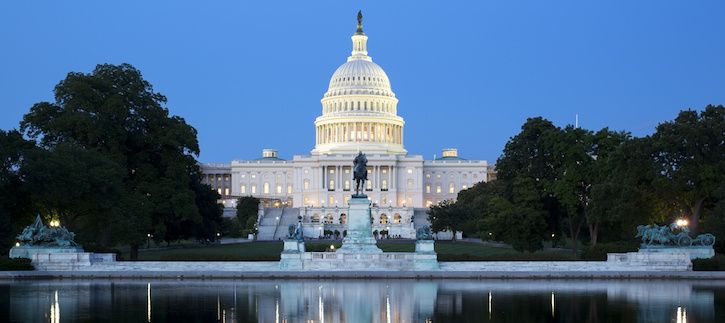Representatives Introduce Amendment to HITECH Act
The bill would give medical clearinghouses some HIPAA exemptions, allowing them to give patients access to their EHRs—and charge a fee to do so.

While Congress has been busy passing major tax reform and delaying Children’s Health Insurance Program (CHIP) reauthorization, a group of Representatives has introduced a bill to allow healthcare clearinghouses to give patients access to their health records—although, as skeptics point out, they would be permitted to charge a fee for doing so.
HR 4613, or the Ensuring Patient Access to Healthcare Records Act, was introduced by Rep. Cathy McMorris Rodgers (R-WA) earlier this month. It amends the Health Information Technology for Economic and Clinical Health (HITECH) Act to “promote patient access to information related to their care, including real world outcomes and economic data…in a form convenient for the patient, in a reasonable manner, and without burdening the health care provider involved.”
“It shouldn’t be this burdensome,” McMorris Rodgers said in a statement. “Our bill gives patients the ability to see a snapshot of their health records at just a simple request, allowing them to make better, more informed healthcare decisions in a timely manner.”
At issue for critics is subsection (c)(3)(b), which permits clearinghouses to assess a “reasonable, cost-based fee” to patients requesting their records. Politico quotes a former CMS official who doubts that the bill’s “intentions are pure.” Versions of the legislation have been introduced before—including HR 4805 last year, also by McMorris Rodgers—and have been backed by a lobbying campaign directed by figures from healthcare clearinghouses like Experian.
McMorris Rodgers’ statement notes that HIPAA “regrettably” denies clearinghouses the ability to share the information, but that the bipartisan bill would change that. Unlike the bill she introduced in 2016, which had only 1 cosponsor, the new legislation has 8, 7 of whom are fellow Republicans.
The lone Democrat, Rep. Raja Krishnamoorthi, represents an Illinois district in the Chicago metropolitan area. Before running for Congress, he was Illinois’s Deputy Treasurer and oversaw the state’s technology venture capital fund.
Many Democrats and Republicans do seem to agree that patients should have better access to their health records. Former Vice President Joe Biden has famously and repeatedly railed against electronic health record (EHR) vendors for interoperability woes and lack of transparency.
The new bill would give clearinghouses exceptions to HIPAA provisions by not considering them covered business associates “for translation of data into and out of standard format, analytic, cloud computing, or any other purpose.” This would allow them to compile information from multiple sources to share with patients, or to compile larger de-identified data sets that can be provided to third party healthcare companies for analysis.
Neither the previous House bill nor an equivalent Senate bill, introduced by Sen. Bill Cassidy (R-LA) without cosponsor in 2016, made it to vote after being referred to committee.
Healthy Bottom Line: The Trouble With SDOH Programs and the Secret to Improving Them
September 28th 2021Several problems exist with current programs that address social determinants of health (SDOH); however, a new social model aims to combat these issues and improve the programs’ effectiveness.